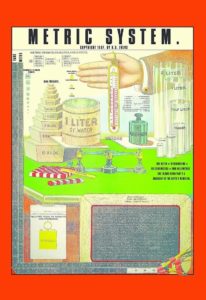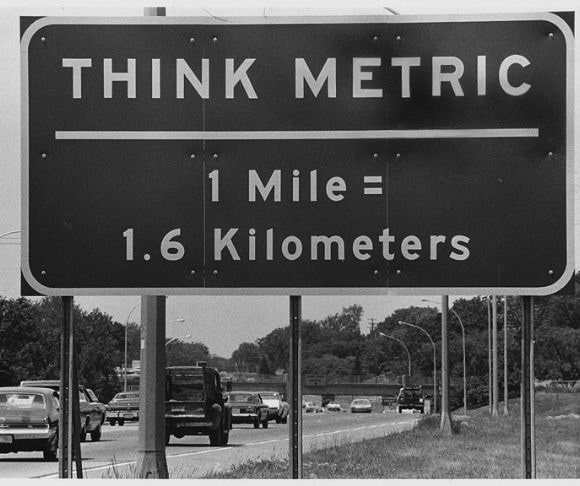The British government has announced that imperial weights and measures may be making a comeback to shops and pubs across the land. After 26 years of European Union laws that mandated metric measurements be displayed alongside the more traditional form, and with at least equal prominence, it seems that pounds, ounces, inches, and pints have a rare opportunity at rebirth.

UNITED STATES – CIRCA 1897: Metric System (Photo by Buyenlarge/Getty Images)
Battle lines are being drawn on this debate between those who believe it is an almost jingoistic move to sever all ties with the E.U. and those who feel the older systems have never really gone away. But is this truly a knee-jerk reaction to a deteriorated relationship with the former European partners, or is it just a simple repealing of expired statutes that remain on the law books?
The Legal Aspect
In 1995, as per E.U. regulations, business owners in Britain were obliged to display the metric alongside the imperial measurements to move towards regulatory alignment. Now that the United Kingdom is no longer a member of the club, Conservatives argue that there is little need to continue to apply laws that have no obligation of enforcement. In fact, although the weights and measures conundrum is the most prominent in the media, the plan is to sever this tie along with a host of other holdovers from the prior economic and political relationship.
Lord David Frost, the chief Brexit negotiator for the government, said: “We now have the opportunity to do things differently and ensure that Brexit freedoms are used to help businesses and citizens get on and succeed.” He continued:
“Today’s announcement is just the beginning. The Government will go further and faster to create a competitive, high-standards regulatory environment which supports innovation and growth across the UK as we build back better from the pandemic.”
The Arguments
Opponents of the repeal argue that a generation of people has grown up using the metric system and that giving imperial more prominence creates an unnecessary burden on both businesses and individuals who are more comfortable with the present arrangement. However, the proposed repeal only means that business owners can choose freely to display one or the other – or both, if they so desire – without the enforcement of an E.U. law steering their decision.
 But what of the argument about a burden on folks who grew up with metric as their primary form of measurement? Well, that’s a little more tricky. You see, the language of imperial measurements never really went away. When people discuss height or weight, the majority talk in terms of feet and inches, stones and pounds; all British road distances and speed limits are displayed in miles rather than kilometers. In pubs, the customer requests a pint, or half a pint, never 0.75 liters.
But what of the argument about a burden on folks who grew up with metric as their primary form of measurement? Well, that’s a little more tricky. You see, the language of imperial measurements never really went away. When people discuss height or weight, the majority talk in terms of feet and inches, stones and pounds; all British road distances and speed limits are displayed in miles rather than kilometers. In pubs, the customer requests a pint, or half a pint, never 0.75 liters.
A Legacy of Language
The language of pounds, ounces, inches, and feet is so ingrained in the culture that it would be impossible to switch systems entirely from one to the other. The reverse is also true – it would be a mighty task to convince folks not to use meters.
Britain has always been a beacon of language; whether that language is adopted from other cultures or, as with scientific terms, is the originator itself. The mile came to the United Kingdom through the presence of the Romans, who measured 1,000 paces as mille passus, from the Latin mille( thousand). So perhaps this move to allow more freedom for business owners to display their wares with whatever their will pleases is not so much a “little Englander” reaction to E.U. overreach, but an acknowledgment that Britain is a European nation, and always has been. It is just not an E.U. nation.
~
Read more from Mark Angelides.




